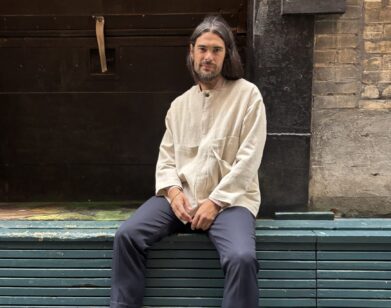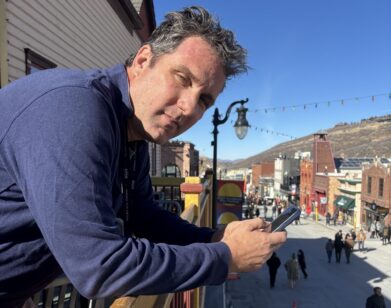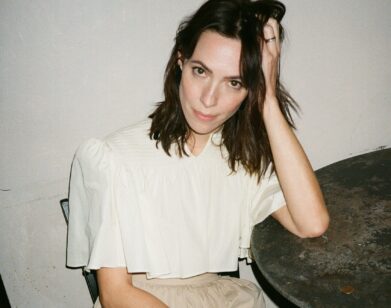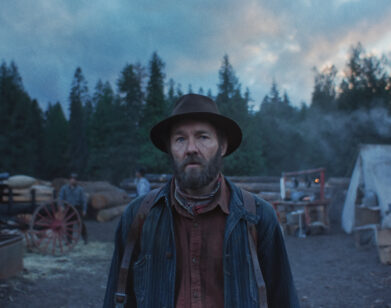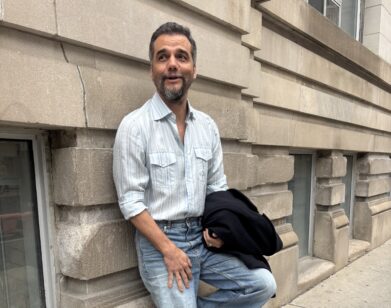ACTOR
Brittany Snow Is Not So Suddenly Everywhere
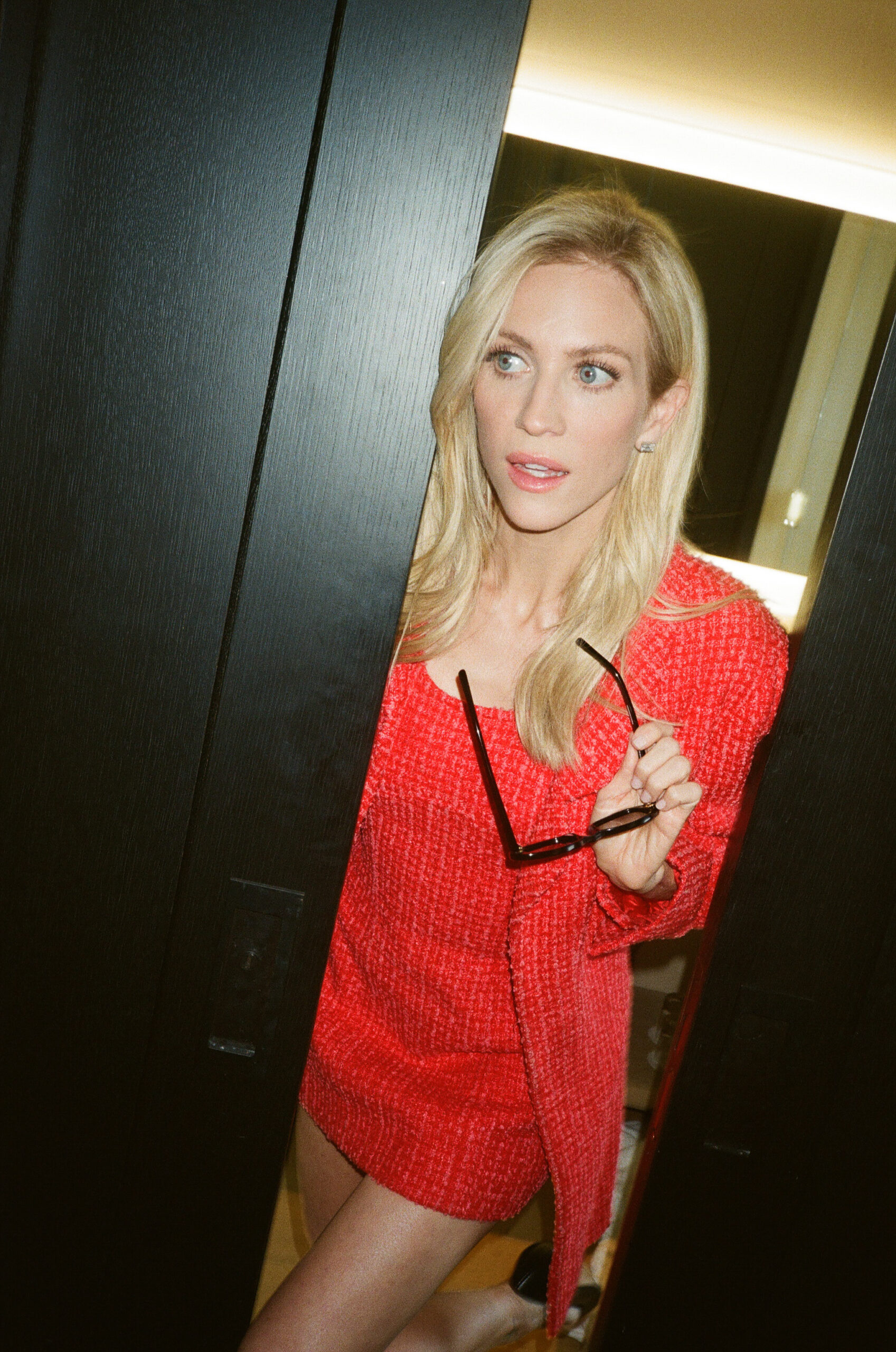
Brittany Snow is having a moment. The actor—who first broke out on American Dreams and went on to star in Hairspray, John Tucker Must Die, and the Pitch Perfect franchise—is suddenly everywhere. First came The Hunting Wives, the deliciously unhinged Netflix thriller that had everyone talking. Then Murdaugh: Death in the Family showed off her dramatic chops. Now, in Netflix’s The Beast in Me, she’s the elegant gallerist married to a wealthy real estate mogul (Matthew Rhys) who may or may not have murdered his first wife, a role that was expanded after the show’s writers couldn’t resist her. It’s an impressive run for an actor who’s been open about her struggles with depression and an eating disorder, and who’s since turned that recovery into her own creative fuel, even directing a film (Parachute) about it. One person who’s impressed but not surprised about Snow’s very big year is her The Beast in Me costar Claire Danes, who called her up last week to get into her headspace.
———
BRITTANY SNOW: Hi. Look at you, beauty. You look so fall and cozy.
CLAIRE DANES: It is fucking freezing in this house, and Hugh [Dancy] and I are set at different temperatures, which most married people are, so he hasn’t let us turn on the heat. Where are you right now?
SNOW: I’m in L.A., but I will be in New York tomorrow.
DANES: Okay, cool. And so it begins.
SNOW: And so it begins. By the way, thank you so much for doing this.
DANES: It’s an excuse to see you, which I will take, and I got to watch a bit of The Hunting Wives. I’m prepping for my next job, reading all these books on frickin’ neurosurgery and sitting in on brain surgeries, and I’m like, “Sorry, I have to watch The Hunting Wives.”
SNOW: [Laughs]
DANES: I feel like I need brain surgery now that I’ve seen it [Laughs]. I can’t unsee it, it’s so good.
SNOW: When we had dinner, I was like, “It’s something, it’s something.”
DANES: I think we have to start there, because, way to bury that lede, Brittany. We worked together for half a year, and you never mentioned this? There was a part of me that felt betrayed when suddenly this phenomenon was revealed.
SNOW: [Laughs] I wasn’t sure how it was going to be received or if people were going to get it. I was like, “Let’s just keep it specific to what we’re doing.” But I think I did tell you that I was naked in it, didn’t I?
DANES: I don’t know. There were many other conversations that felt more pronounced. 2025 is a challenging year in many ways, but I would say the one light in it is Brittany Snow, because you are suddenly everywhere, and it brings me endless joy. Not that there was a well-kept Brittany Snow secret, but if there ever was, it’s been exploded wide open. How does it feel to be you right now?
SNOW: The fact that you’re saying that to me is so surreal because it feels like I have to take myself out—I don’t know if this happens to you, but I don’t really have a firm grasp on what other people are thinking about me, or if people are talking about me. It feels so dissociated that I know it’s happening, but I can’t bring it into my life. I feel like it’s happening to a friend of mine in some regard, where I’m very proud of her, but I’m not really taking it in that it’s happening to me. We’ve been in this business for so long, it also feels like I’m coming back, in a way, to a place I already was.
DANES: But with the advantage of having lived a while, how beautiful is that, right? You’ve made a lot of work that is wonderful and people are appreciating it, and you’re also grounded in your identity. I get that sense from you, anyway. But yes, I think that’s a really wonderful way of describing it, and it’s the healthiest version of it. But anyway, it’s easy for me to see how spectacular a moment this is for you, and I’m just really thrilled about it because you’re the very best.
SNOW: You’re the best. I just want to interview you.
DANES: So you say we’ve been doing it for a long time, and we have. When did you start exactly?
SNOW: My mom got me into it when I was a baby. I started doing my first big television shows and things when I was eight, and then I got a soap opera when I was 12.
DANES: Did you have any resistance to it in those very early days when your mom decided this for you, or were you always game?
SNOW: I never had another thought of doing anything else. It wasn’t even necessarily having to do with my mom. There was no other option. I just felt like I was always trying to get to the next level of something that was destined for me, as cheesy as that is.
DANES: Was there a role or moment that made you realize this is what you wanted to do?
SNOW: I shot a short film about the very moment. It’s called Milkshake, and it’s about the moment that I discovered the same thing a lot of kids discover in their childhood, which is having a high that you get when you find the thing that makes sense to you the most. I had that moment when I was shooting Guiding Light, because I was shooting a scene where I was yelling at my mom, and I was crying and asking her a bunch of questions that were really hard to ask of a child to a mom. It was this all-encompassing feeling where I was just floating and I wasn’t thinking about it, and I felt high for the first time, realizing I could yell at my mom by being this character. I could never yell at her in real life, but I could do it throughout this medium. I got done with that scene, and everyone was cheering. That was the moment I thought, wow, I get to do this for the rest of my life.
DANES: Those are the moments we live or work for. They’re thrilling, they’re transcendent, and they’re pretty rare [Laughs].
SNOW: That’s how I feel when I’m doing my best work—the transcendence—and it sounds so cheesy and silly.
DANES: And do you know what? When I don’t work for a while, there’s a part of me that feels a little congested, because I don’t have another place where I can find that experience, so I’m a little frustrated. But it’s very clear to me that you’ve been working for as long as you have because you’re so fluent as an actor—you’re so technically proficient and soulful. I don’t mean to say that you’re like a robot, but I’ve found this too, working with Zac Efron, these people who come through institutions, factories—there’s a level of conditioning that leads to a really amazing gracefulness. Do you have anxiety about it? Do you feel any resistance that I just can’t detect?
SNOW: God. My entire career and the whole arc of what’s happened to me in the past 15 to 17 years has been the understanding that that fluidity and that coming back to what I already know how to do is the thing that’s always been there, but the thing that’s gotten in the way is my own head and my own self-sabotage or overthinking. That’s where the anxiety comes in. I’ve had to really unlearn how to get that part out of the way so I can be proficient and fluid in all the things I know how to do.
DANES: That’s two sides of the same coin. You also have a really fertile imagination, so that is serving you as an actor, and it can also be problematic if it’s unchecked. It’s about finding ways to harness it. I had trouble when I did stop acting for a while, when I did interrogate it and wonder if it’s what I wanted to continue doing for the rest of my life. I went to college and didn’t work for years, and suddenly my analytical self got way overdeveloped. Then when I went back to acting, it took me a while to remember that it’s a largely intuitive practice, and that sure, all of that education and critical thinking is useful, especially when I’m thinking about the material in a macro way, but when it comes to the actual playing of the thing, it’s better to be an eight-year-old. But yeah, it’s such a weird thing we do, Brittany. It’s very, very weird.
SNOW: That’s exactly what happened to me, too. I took that break from acting to get my shit together, for lack of a better sentence, and I got back and I was like, “I don’t have any of the tools that I had when I was a child actor, because I just was doing instinctual things and I was using my pain—and I was in so much pain—so I was using it and all this stuff.” And then I’m in recovery, and I was like, “Wait, I have to use techniques?” And I got really heady about it, and it took away the magic a little bit. So coming back to where I get to do a show like The Hunting Wives, it has been very nice to come back to that feeling.
DANES: It can be so fun to work in really exaggerated worlds. I felt that way in Homeland. It was all just so absurd [Laughs]. All rules fly out the window, and it’s so emboldening. I felt like I was on a trampoline. I just really enjoyed that excess, it’s fabulous.
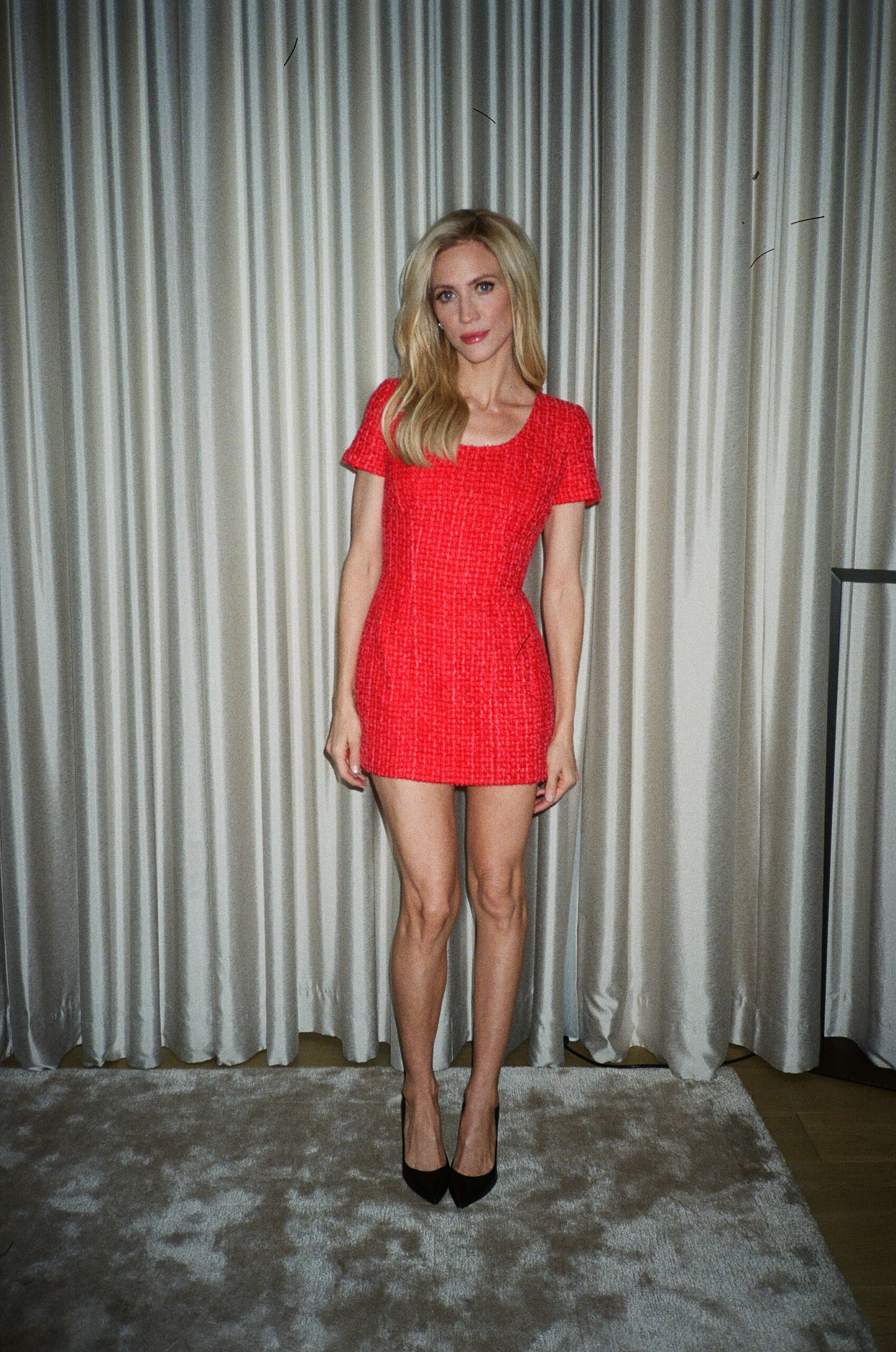
SNOW: But you have a really unique ability, which is what I have always been really wrestling with. There’s so much underneath the text of what you’re doing that it can be big, but it’s so real to you. I’ve always thought that’s exactly the type of actress I want to be.
DANES: Oh, that’s so nice of you to say. And that is so entirely, obviously true of what you’re doing in The Hunting Wives, because yeah, it’s super soapy, but you are so present and grounded and doing really complex work at the center of it. You make it totally credible.
SNOW: Oh my god, thank you so much.
DANES: And so much harder to do than maybe people realize. But I also want to talk about you having dared to do something that I can’t even fantasize about—to cross the line into directing—which you’ve done so brilliantly and so quietly. Like, what!? You did that without much announcement or fanfare. How did you arrive at that? And were you spooked? Were you psyched?
SNOW: It was one of those things where I felt really called to tell, narcissistically, the story because it was mine [Laughs]. My goal for this movie was for someone who had an eating disorder, anxiety, depression, to watch it and say, “This is what I feel like. It might not be exactly the experience, but this is the encapsulation of what my experience has felt like.” So it was during COVID that I put myself through mini film school. I watched all the movies that I felt like I needed to, and read all the books, and at the end of the day, I thought if I could just be honest with what happened to me, then someone would watch it and feel like it was honest for them. It was like six years of getting the movie made and financed and then done. I knew it wasn’t going to be a big splashy thing, but to this day, the biggest compliment is when people write to me and say that this is the most accurate depiction of what their eating disorder felt like. And we worked with a charity, the Alliance for Eating Disorders, and they email me all the time that people call the hotline at the end of the movie.
DANES: Wow, that’s amazing. I think it’s a really misunderstood illness, and misrepresented, and unexplored, and I think people avoid it for all sorts of reasons. It’s also hard to dramatize. I was on the subway and there was a woman opposite me who was clearly unwell, and she wasn’t suffering from an eating disorder, but she was sick, and there was a rigidity. I don’t know what it was, but she was having a conversation with herself, and she was stuck. It was like a glitch. And it was just really clear to me how tyrannically boring illness is. And so therefore, it’s hard to make it engaging for an audience. But I think you did that really beautifully, and you’ve turned it into a love story. Anyway, I thought it was really beautiful and radical, and I think you are yourself—but you’re also very busy. You’re so busy [Laughs].
SNOW: Well, now, but it’s not always been like this. A few years ago, I remember having this intuitive thought that said, “Save your energy now, because this is what you’ve trained for.” This is why I did the self-help books and went to therapy. Anything hard that ever happens to me, I do have that thought process that this is going to help me somehow. And I do feel like now that I’m a little bit busier, it’s great to remember that this is what I trained for, and I’m not ever going to complain about it because I know what it’s like to be on the other side, which is, I’m never going to work again [Laughs].
DANES: The pendulum’s always swinging for all of us. I’m thinking about these three roles that you’ve played recently. They’re all really fierce women that almost everybody initially dismisses, and they’re accessing in real time, over the course of the story, their latent strength and fire.
SNOW: I don’t know if this always happens to you, where somehow the roles I play are the epitome of a mirror of what my own internal struggle needs to exorcize.
DANES: Yes. And I can never anticipate what it’s going to be. I get a role and I’m like, what the hell? Why this? Why now? And then it’s only later that I make sense of the emotional logic. I have to be passive about it because I can never guess what’s going to be served to me and what I need to apparently work through.
SNOW: That’s exactly what this has been, especially with The Beast in Me. What an honor for that character to have such a full arc. I really enjoy that she was so symbolic of what I felt like at the beginning of shooting the show. And then by the end of the show, I was like—
DANES: Well, we didn’t know where it was going either. Because I’d worked with both Howard [Gordon] and Daniel [Pearle] before, I had confidence they would eventually get there. I know that your role grew because they just loved writing for you, and you were communicating something that they were then riffing on and further developing.
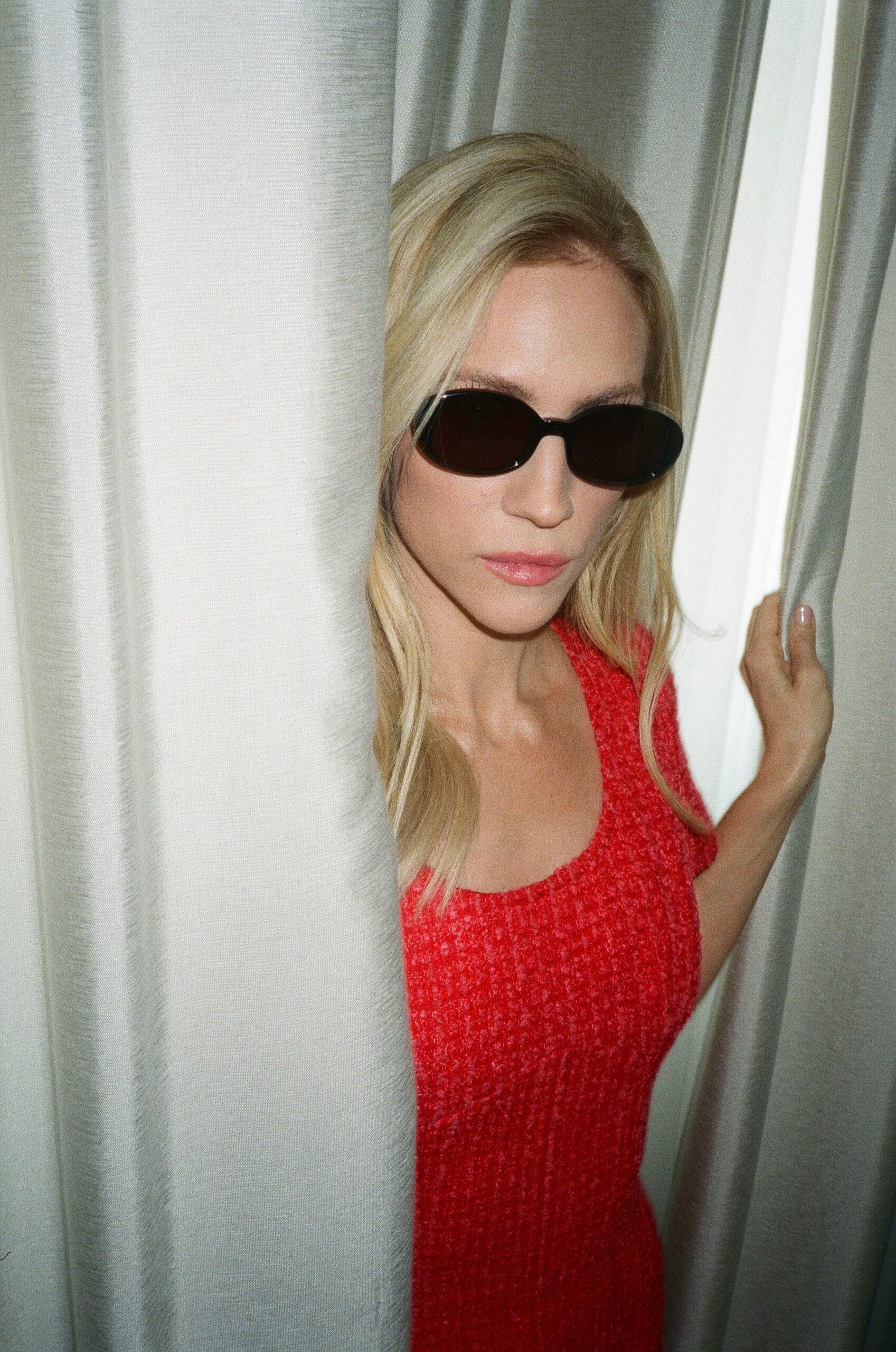 SNOW: I did feel like I advocated a little bit for myself to Daniel, and I will always remember that conversation because it was such a true marking of my recovery, that I sat with him in the trailer, and I was like, “This role is not going to end like this. I think she can do this, this, and this.” And he really took that to heart, and I’ll always thank him for that. The more that women advocate for themselves and know that they can do those types of things, it hopefully pays off.
SNOW: I did feel like I advocated a little bit for myself to Daniel, and I will always remember that conversation because it was such a true marking of my recovery, that I sat with him in the trailer, and I was like, “This role is not going to end like this. I think she can do this, this, and this.” And he really took that to heart, and I’ll always thank him for that. The more that women advocate for themselves and know that they can do those types of things, it hopefully pays off.
DANES: Yeah. Anyway, it was humbling to find you at the door too, at the house, just looking so beautiful. Suddenly I was like, “Wow, I’ve never felt more leaden and troll-like.”
SNOW: Shut up!
DANES: It was true! I found it amusing.
SNOW: I see that scene, though, and obviously you’re doing a great job being Aggie, but there’s a moment where I know that you’re Claire looking at me smiling, and it’s the cutest thing.
DANES: [Laughs] But that scene was weirdly nerve-wracking for me because I announced myself. Sometimes when I’m starting a new job and I have to claim my character by saying, “Hi, I am so-and-so,” part of me is like, “No I’m not. Who am I kidding?” Or when I married Hugh, it took me a good year to feel comfortable saying, “My husband.” It’s a little like that.
SNOW: That was that scene for me, too. I mean, we had so much fun. It was not a serious set, thank god.
DANES: If the actual environment feels too dark or unpleasant, I find it much harder to get to the places that we want to go. Save the drama for what’s happening on the screen. Well, I’m excited to share it with people, and I’m excited for everybody to discover your brilliance all over again. And I also started watching Murdaugh [:Death in the Family], which is really, really, good. Everybody’s excellent in it.
SNOW: Oh my gosh. Jason [Clarke] and Patricia [Arquette] are so incredible.
DANES: Anyway, what a triptych and what a moment. I look at you with such awe because it seems like there’s an effortlessness. And also, you’re so fun to work with because you’re so thoroughly available and alive and funny.
SNOW: Okay, you have to stop. This is even better than my therapy session.
DANES: No, you’re just the best. I listened to Las Culturistas, and they spent 75 percent of the conversation just kvelling over you. I heard you’re going to do an episode, and I can’t wait.
SNOW: And I talk about you, and I talk about our love. It’s come full circle.
DANES: This was so fun, and I guess I’ll see you tomorrow when you get off a plane. I’m excited to give you a hug in person. I hope you get to watch really good bad movies on the plane.
SNOW: I always do. It’s the best [Laughs]. And cry.

